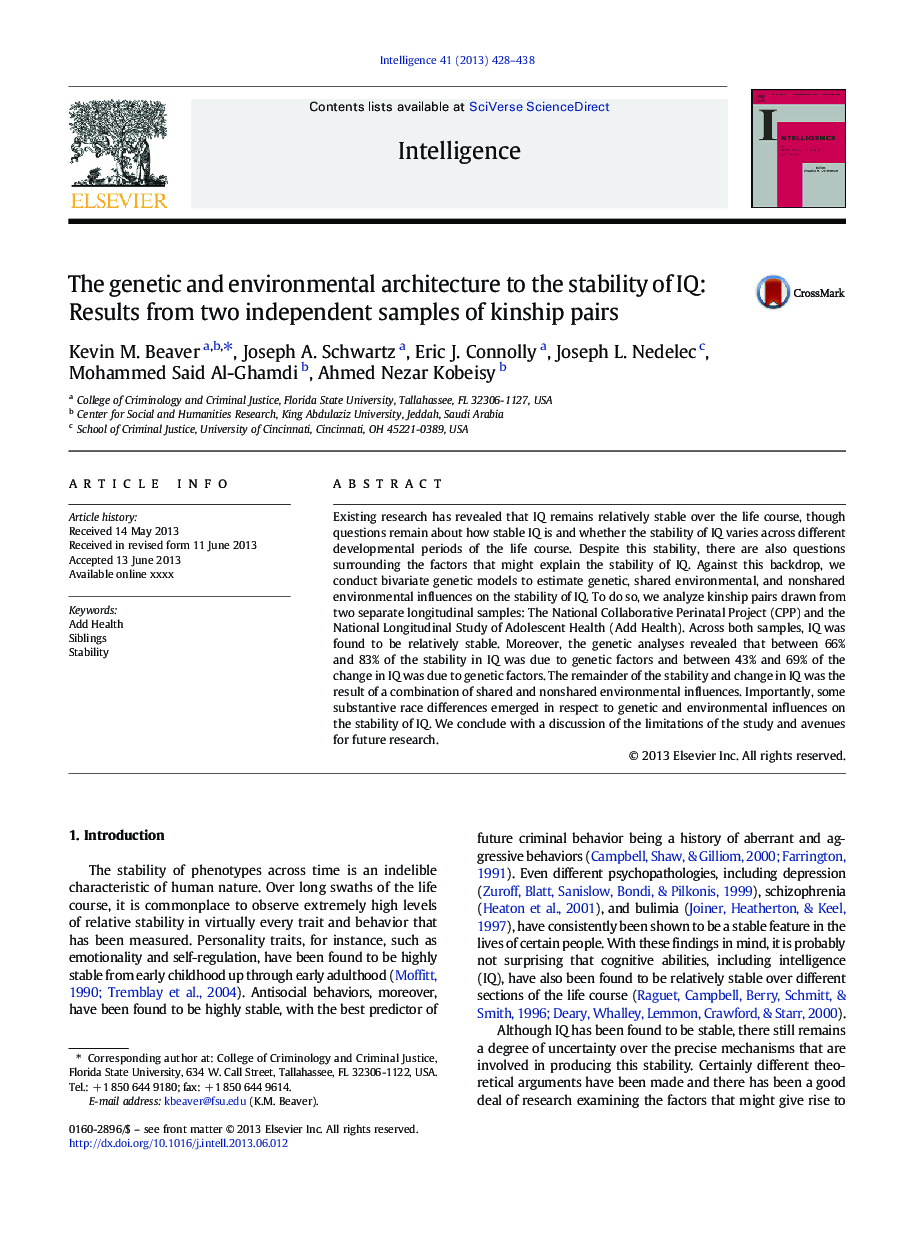| Article ID | Journal | Published Year | Pages | File Type |
|---|---|---|---|---|
| 10459402 | Intelligence | 2013 | 11 Pages |
Abstract
Existing research has revealed that IQ remains relatively stable over the life course, though questions remain about how stable IQ is and whether the stability of IQ varies across different developmental periods of the life course. Despite this stability, there are also questions surrounding the factors that might explain the stability of IQ. Against this backdrop, we conduct bivariate genetic models to estimate genetic, shared environmental, and nonshared environmental influences on the stability of IQ. To do so, we analyze kinship pairs drawn from two separate longitudinal samples: The National Collaborative Perinatal Project (CPP) and the National Longitudinal Study of Adolescent Health (Add Health). Across both samples, IQ was found to be relatively stable. Moreover, the genetic analyses revealed that between 66% and 83% of the stability in IQ was due to genetic factors and between 43% and 69% of the change in IQ was due to genetic factors. The remainder of the stability and change in IQ was the result of a combination of shared and nonshared environmental influences. Importantly, some substantive race differences emerged in respect to genetic and environmental influences on the stability of IQ. We conclude with a discussion of the limitations of the study and avenues for future research.
Keywords
Related Topics
Social Sciences and Humanities
Psychology
Experimental and Cognitive Psychology
Authors
Kevin M. Beaver, Joseph A. Schwartz, Eric J. Connolly, Joseph L. Nedelec, Mohammed Said Al-Ghamdi, Ahmed Nezar Kobeisy,
